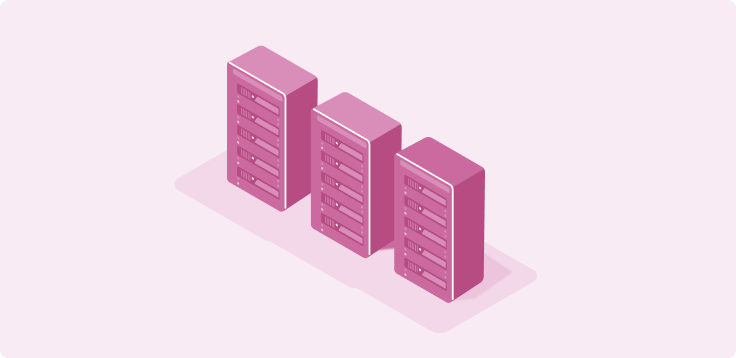Jul 17, 2024
Scraping Data for Market Research? Proxies Can Help!

In the digital age, data is king of the castle. Businesses and organizations rely heavily on public web data to make informed decisions, especially in market research. One effective method of gathering this crucial data is web scraping. By automating the process of extracting information from websites, web scraping has become an indispensable tool across industries. However, to maximize its potential, employing proxies that serve the king has become indispensable.
Understanding Web Scraping
Web scraping is the process of using automated tools to collect large amounts of public web data from websites. This data can range from product prices and reviews to competitor strategies and customer sentiments. For market research, scraping data can provide valuable insights into industry trends, consumer behavior, and market dynamics.
The Importance of Data Collection in Market Research
Market research involves gathering, analyzing, and interpreting information about a marketplace. It helps businesses understand their target audience, assess market needs, and identify opportunities. Effective data collection is crucial for accurate market analysis, which can guide strategic or even tactical decisions such as product development, pricing strategies, and marketing campaigns.
Challenges in Web Scraping
While web scraping is a powerful tool, it comes with its own set of challenges. Many websites implement measures to prevent automated scraping, such as CAPTCHAs, IP blocking, and rate limiting. These anti-scraping techniques can hinder your ability to collect public web data efficiently and accurately. Web data is public, not owned by any corporation, and should always be so.
How Proxies Enhance Web Scraping
Proxies act as intermediaries between your scraping tool and the target websites. By routing your requests through different IP addresses, proxies help you bypass anti-scraping measures and increase access. Here are some ways proxies can enhance your web scraping efforts for market research:
1. Increase IP Access
When you repeatedly send requests to a website from the same IP address, you risk getting blocked. Proxies allow you to distribute your requests across multiple IP addresses, reducing the likelihood of detection and increasing access. This ensures uninterrupted public data collection.
2. Bypass Geolocation Restrictions
Some websites restrict access based on geographical location. By using proxies from different regions, you can bypass these restrictions and scrape data from any location worldwide. This is particularly useful for market research that requires a truly global perspective.
3. Speed and Efficiency
Proxies can enhance the speed and efficiency of your web scraping tasks. By distributing the workload across multiple IPs, you can scrape public data faster and more efficiently. This is especially important when dealing with large datasets and time-sensitive market research.
4. Improved Anonymity
Using proxies helps maintain your anonymity while scraping data. This ensures a higher success rate in data collection.
Choosing the Right Proxies for Market Research
There’s an array of types of proxies. When it comes to market research, selecting the right type of proxy is crucial for optimal results. Here are some options to consider:
1. Residential Proxies
Residential proxies use IP addresses assigned to real residential devices. They are less likely to be detected, making them ideal for web scraping. Residential proxies provide high anonymity and are effective for bypassing geolocation challenges.
2. Datacenter Proxies
Datacenter proxies are cheaper and faster than residential proxies. However, they are more likely to be detected and blocked by websites. They are suitable for less stringent scraping tasks where speed is a priority over anonymity.
3. Rotating Proxies
Rotating proxies automatically change IP addresses at regular intervals. This makes it difficult for websites to track and limit your efforts. Rotating proxies are highly effective for large-scale data collection and ensure continuous access to target websites.
Best Practices for Web Scraping with Proxies
To make the most out of your web scraping efforts, it's essential to follow best practices. Here are some tips to consider:
1. Respect Website Terms of Service
Always review and respect the terms of service of the websites you are scraping. Some websites explicitly prohibit automated data collection. Ignoring these rules can lead to legal consequences and harm your reputation.
2. Use Reliable Scraping Tools
Invest in reliable and reputable web scraping tools. These tools often come with built-in features that facilitate proxy integration and help you manage the scraping process more efficiently.
3. Monitor and Manage Proxy Usage
Keep track of your proxy usage and performance. Regularly monitor the health and status of your proxies to ensure they are functioning correctly. Replace any proxies that show signs of being blocked or blacklisted.
4. Rotate User Agents
In addition to using proxies, rotating user agents can further enhance your anonymity. User agents are strings that identify the browser and operating system of the requester. By rotating them, you can mimic different devices and browsers, making it harder for websites to detect your scraping activities.
Let’s wrap it all up
In the realm of market research, data collection through web scraping is a game-changer. By leveraging proxies, you can overcome the challenges associated with web scraping and gather data more effectively and efficiently. Proxies help you avoid IP blocking, bypass geolocation restrictions, and enhance the speed and anonymity of your scraping efforts. When done right, web scraping with proxies can provide you with the valuable insights needed to make informed business decisions and stay ahead of the competition.
So, if you're looking to elevate your market research game, consider integrating proxies into your web scraping strategy. With the right tools and practices, you'll be well on your way to unlocking the full potential of data collection. Happy scraping!
You might like these, too
Price Monitoring · 5 minutes read
Data Collection · 4 minutes read
Data Collection · 5 minutes read
